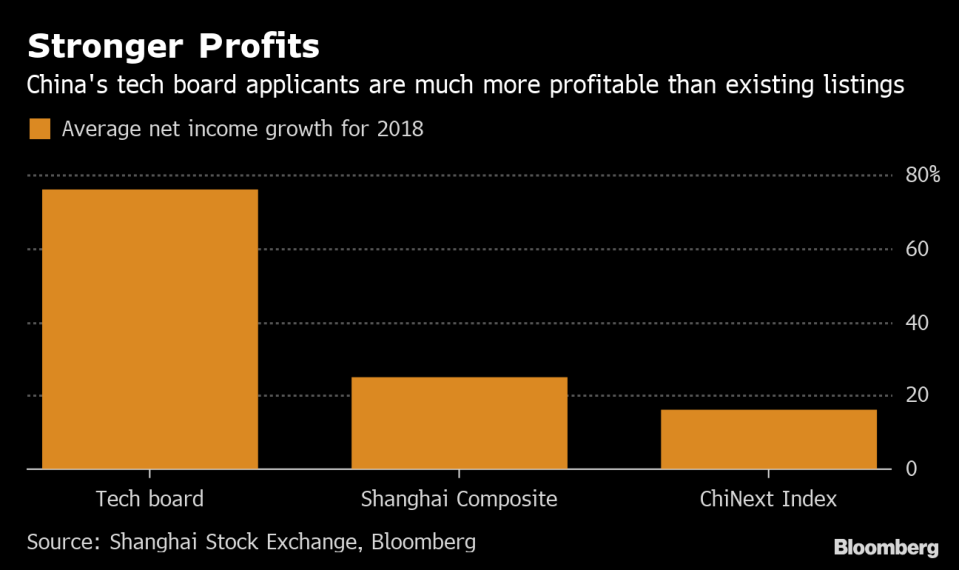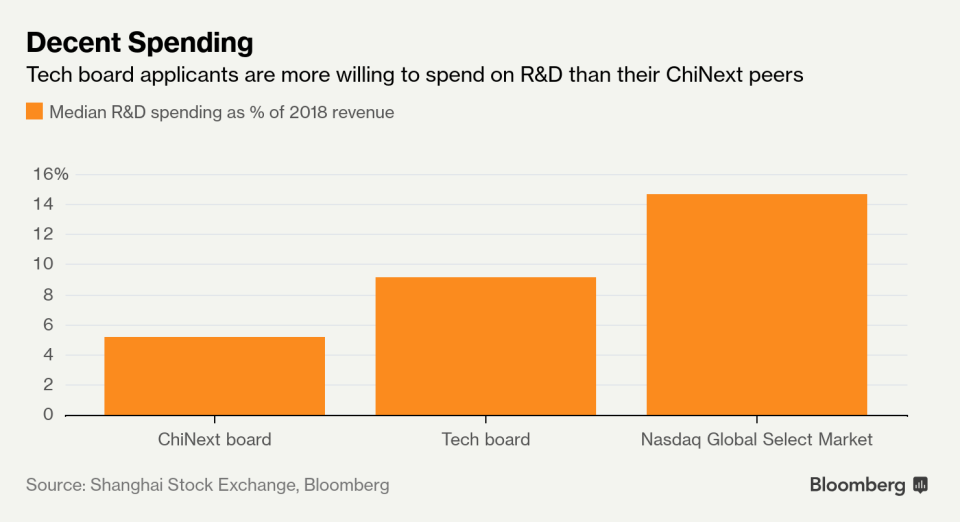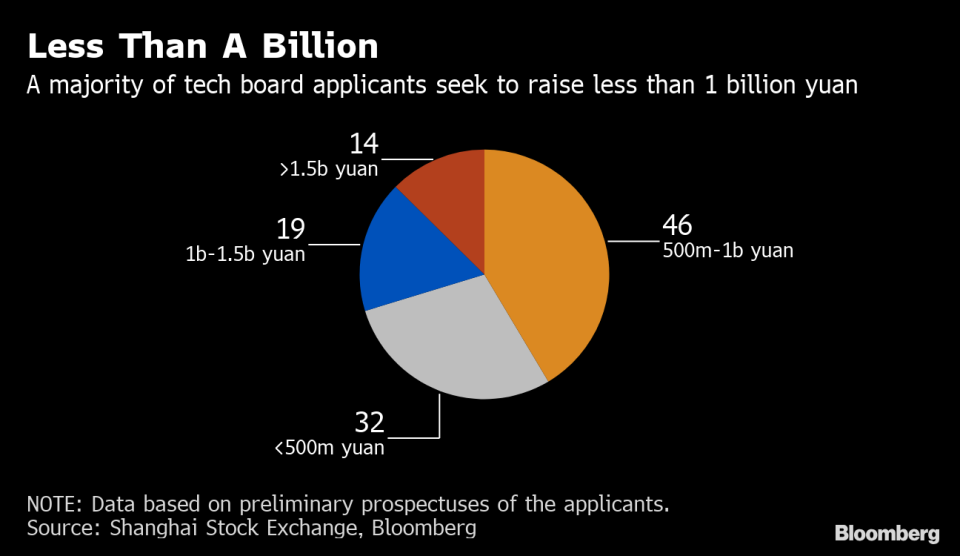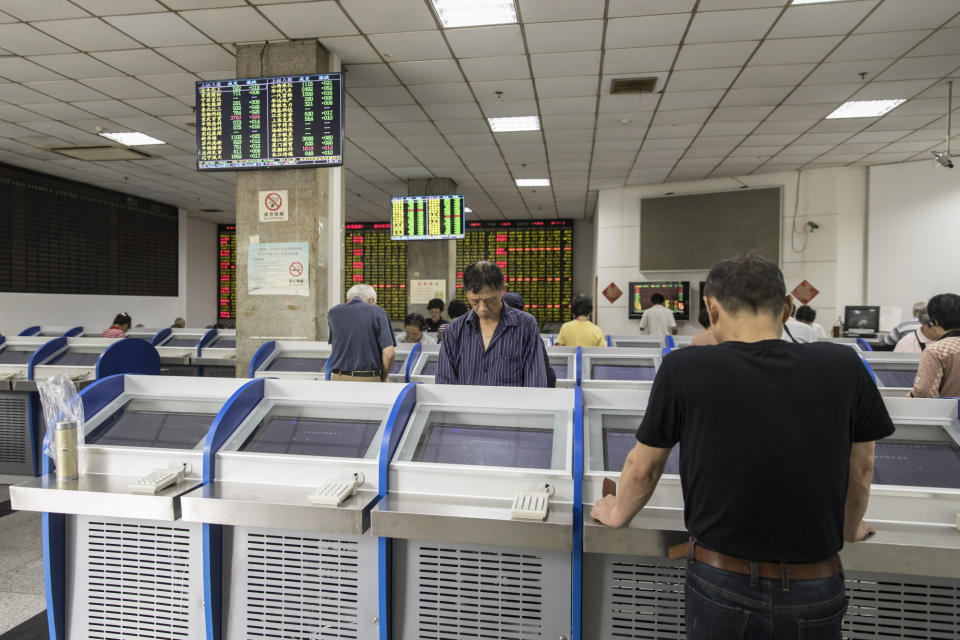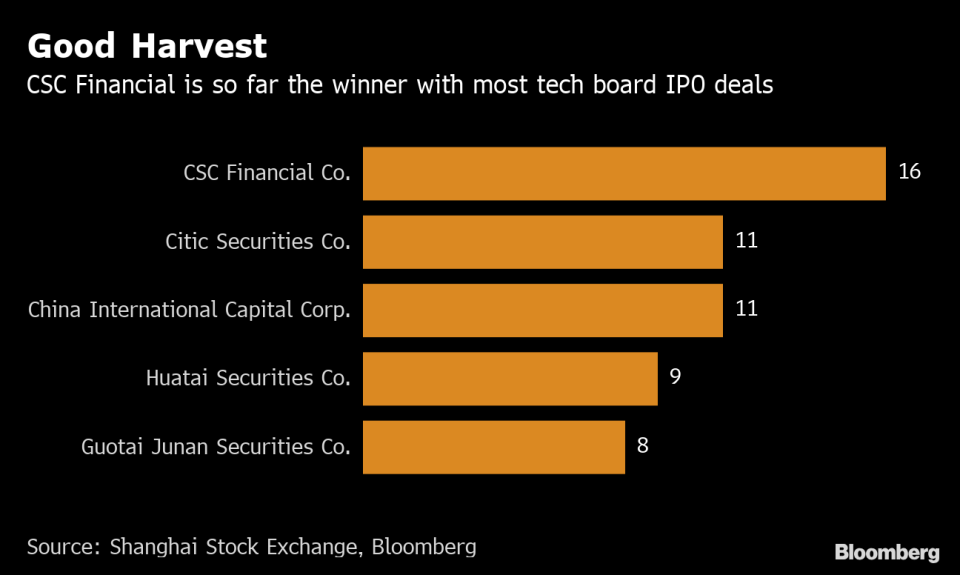In This Article:
(Bloomberg) -- China’s experiment with a new Nasdaq-style board is looking a lot less revolutionary than expected.
Even though regulators relaxed listing rules to allow loss-making companies to go public, the first batch of applicants to make it onto the new Shanghai technology board’s review list suggests not much has changed -- yet. Out of the 111 firms that got to the application stage as of Monday, all but one posted a profit last year. The listing of the outlier, Ninebot Ltd., is on hold.
“China wants to ensure the first listings are successful and of good quality,” said Fu Gang, a fund manager at Shanghai RiverEast Asset Management Advisory Ltd. “The strict vetting process will remain in place, before China gradually relaxes its regulation over the board.”
While this may result in higher-quality listings, companies have found the process less simple than they may have hoped. Many filings have been mired in scrutiny, after the exchange peppered applicants with questions due to what it saw as insufficient detail.
The exact start date for the new technology board remains unknown, and could be affected by the ructions in China’s stock market amid the trade war with the U.S. Nonetheless, the Shanghai exchange has said it will review listing applications of three companies at its first IPO review meeting on June 5, a sign that it may soon issue the first approvals.
The Shanghai exchange designed five sets of listing rules to tailor to the various types of tech and innovative firms that wish to list on the new board, the bourse said in a written response to Bloomberg questions. The rules are more tolerant of companies yet to make a profit or those with dual-class share structures, it said.
Firms generally need a three-year track-record of profitability before they can apply for an A-share listing. China’s earlier attempt at a Nasdaq-style board, the ChiNext, has a more lenient requirement of two years, or one year if the applicant’s latest full-year revenue meets a threshold. The new board aims to be less demanding, allowing loss-making firms as long as they meet other criteria, such as raking in sufficient revenue and maintaining a steady cash flow.
The charts below take a closer look at the quality of companies seeking to list on the new board.
Tech board applicants that posted profit in 2018 and 2017 saw corporate earnings grow by an average 76% last year, according to Bloomberg calculations. That compared with 25% growth for companies on the benchmark Shanghai Composite Index, or a 16% expansion rate for those listed on ChiNext.

